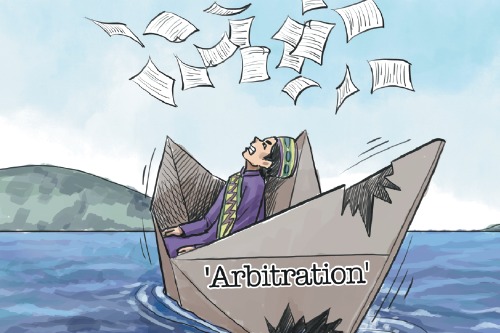Biased scrutiny of China’s engagement with Africa


No matter how many roads, schools and hospitals it has built on the continent, and how much it has contributed to African economies, in the eyes of some people in the West, China can never do anything right in Africa.
These people spread the fallacy that China is simply a neocolonialist country plundering Africa's resources. They claim the money that China pumps into Africa, with no political strings attached, enriches only a few corrupt officials.
Now they are again pointing an accusing finger at China, saying its financing has only added to the heavy debt burden of African countries.
Chinese Foreign Minister Wang Yi was right to refute this as a "false claim" during his visit to Angola on Sunday.
The claim is also vicious, as it aims to alienate African countries from China and denigrate the country's international reputation.
China is now Africa's largest trading partner, with two-way trade expanding 22 times, and nonfinancial investment rising sixtyfold between 2000 and 2014.
The debt problems that some African countries are facing have been a cumulative result of complex factors, both internal and external, such as failed government policies and changing world export markets, spanning decades.
Actually such ills can be fixed only through sustainable economic and social development, which is what China's massive projects aim to achieve.
Unlike the United States, whose condescending approach to Africa was summed up by President Donald Trump in September, when, addressing African leaders at a UN luncheon to discuss the "tremendous potential" of Africa, he said: "I have so many friends going to your countries, trying to get rich. I congratulate you."
While the relationship between China and Africa in the recent past was stereotypically boiled down to the fundamental of infrastructure and development in exchange for natural resources by those seeking to denigrate China, that can no longer be done.
Chinese capital has steadily diversified and is increasingly promoting added-value goods and services in Africa, while African investments in China are on the rise.
It is Africans themselves who are the best qualified to speak about Sino-African cooperation and its benefits. According to a 2016 poll conducted in 36 African countries by a Pan-African research network, almost two-thirds of Africans surveyed had a "generally favorable" view of China's role in Africa.
That is because the longstanding close relationship between China and Africa has been built on political equality and mutual trust, and led to results that have benefited both sides.


































